When it comes to our health we often focus on nutrition and exercise, which are great, but if we are not providing our body with adequate rest, our efforts may go unnoticed. Studies show that 1 in 3 adults don’t sleep enough. I am sharing my top strategies and tips for a better night’s sleep.
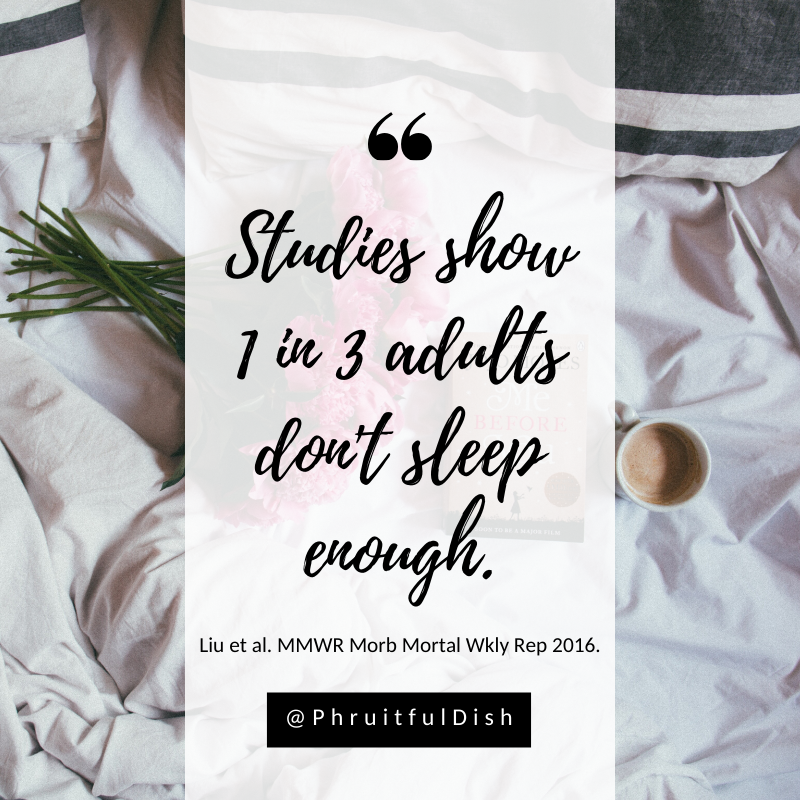
1. Establish sleep stability
Generally, we want to be waking and sleeping at the same time each day. This is important because our bodies follow a circadian rhythm. When our circadian rhythm is disrupted, several outcomes may occur including unintentional weight gain, increases in leptin (the hunger hormone) and insulin, increased impulsivity, and slower cognitive responses.
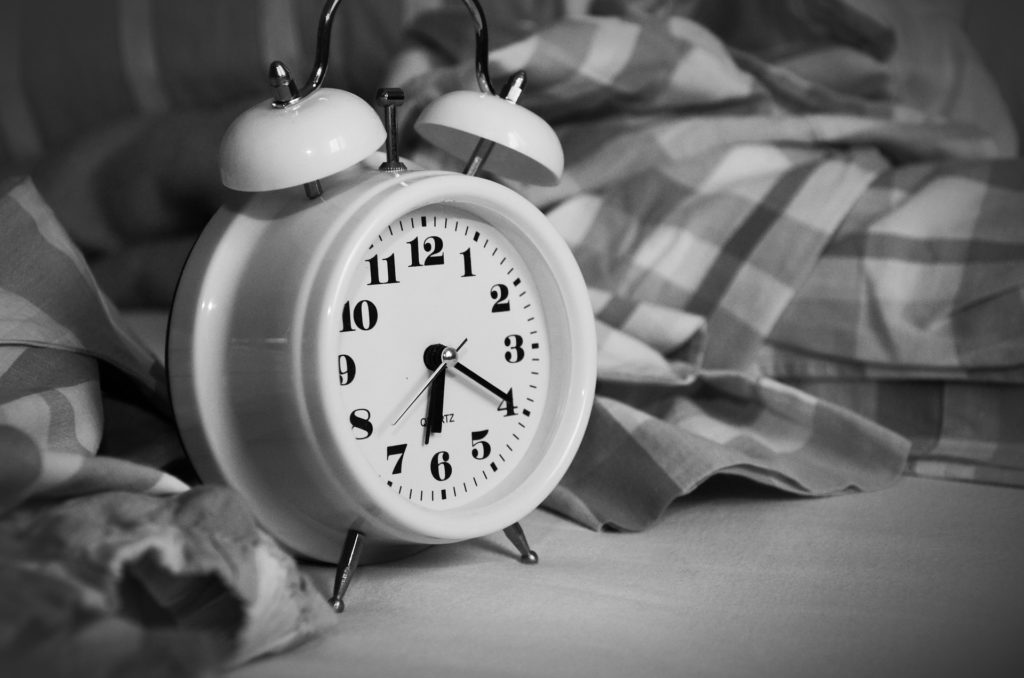
Our sleep-wake circadian rhythm is highly based on light. Opening the blinds in the morning upon waking can help increase wakefulness in the day, and sleep quality at night.
2. Avoid substances like caffeine and alcohol in the evening
We are each affected by caffeine differently, so this is something we each need to experiment with. Recent research actually found that coffee and tea consumption before bed didn’t affect sleep, much to my surprise! Meanwhile, alcohol and nicotine before bed did disrupt sleep.
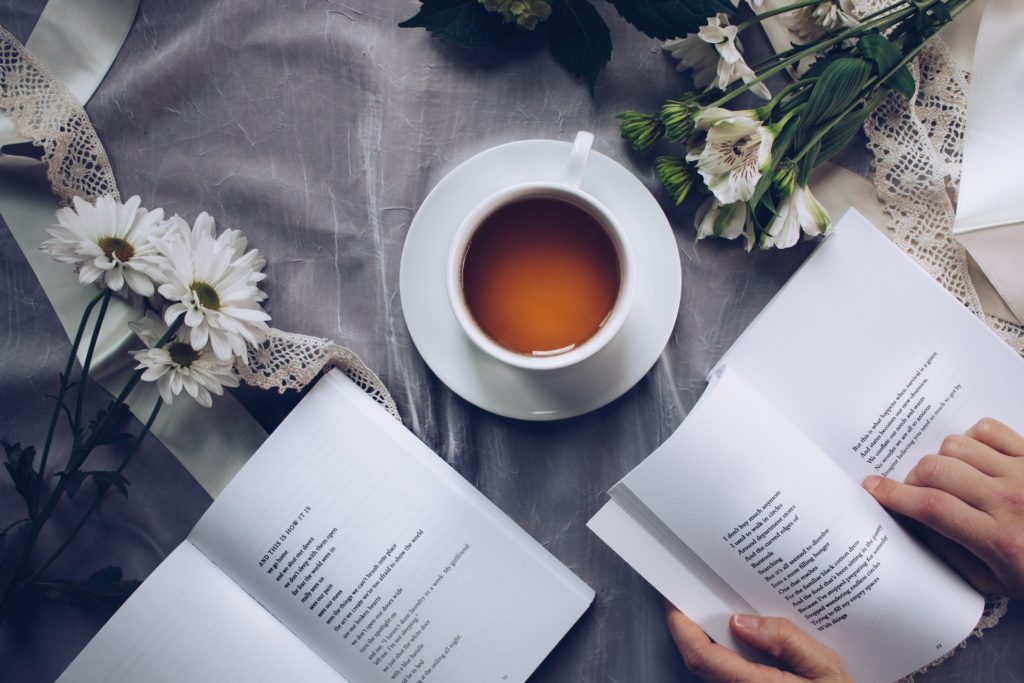
Personally, I know caffeine can provoke anxiety, so I keep it to a minimum. Try a calming tea instead like chamomile, ashwagandha*, or turmeric.
*Some people should take caution when using herbs, including ashwagandha, so always confirm with your healthcare provider first.
3. Turn off electronics 1-2 hours before bed
You may be hearing a lot about blue light lately. We are exposed to blue light from light sources like the sun, lightbulbs, and electronics. During the day sunlight is very beneficial. However, the blue light from our electronic devices, which most of us are using in the evening, may impair our production of melatonin. Melatonin is critical for sleep. One study found that evening blue light exposure decreased sleep quality. Opting for a book, music, or a podcast in the evening can limit our blue light exposure.
If being on devices is a must, there are programs available that can block blue light, such as F.lux or night mode on our phones. However, we don’t have studies yet to determine how effective these programs are. Blue light blocking glasses are available, too, which experts think may be more effective than screen programs.

4. Consider magnesium and/or CBD oil supplementation**
Magnesium supplementation can have several benefits including more restful sleep. One symptom of magnesium deficiency can be insomnia or restless sleep. Magnesium helps maintain GABA production which is essential for relaxation and sleep. A few studies have shown that magnesium can improve insomnia. In addition, magnesium intake has been positively associated with depression (a known factor in insomnia). I stir magnesium powder in cold water or hot tea before I crawl into bed to wind down for sleep.

CBD, or cannabidiol, contains cannabinoids, which are important players in our body’s endocannabinoid system. CBD oil is non-psychoactive but may help regulate mood. One endocannabinoid, called anandamide, that is produced in our bodies is actually referred to as the “bliss molecule”. Low levels of anandamide have been linked to decreased happiness and increased anxiety. Increased anxiety negatively impacts sleep. Particular foods can increase our production of anandamide, like dark chocolate. CBD can prevent the breakdown of anandamide, and therefore, create more bliss.
Disclosure: I receive a small commission when the following products mentioned are purchased through my links. This allows me to provide you free articles and social media content daily (thank you!). I only work with brands I adore and use myself.
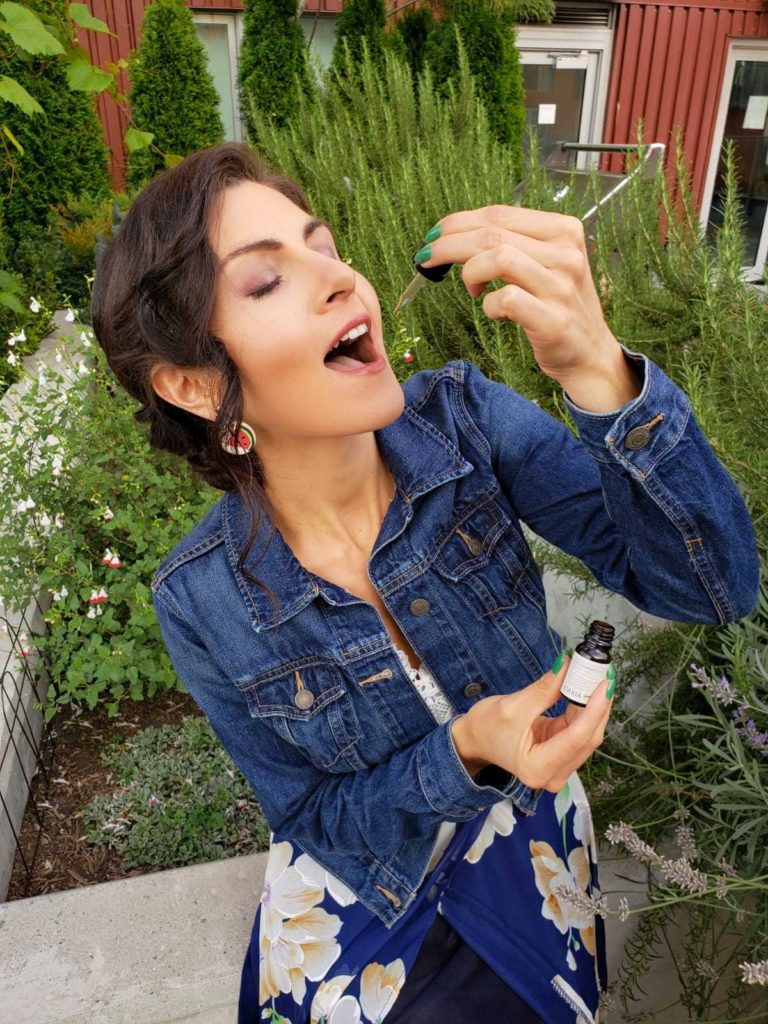
In 2019 a clinical study was published which included 72 people. These adult subjects were given 25 mg of phytocannabinoids per day. After one month, 79% of the anxiety-sufferers experienced improvements in their reported anxiety scores. Also worth noting is that many cases of insomnia are tied to anxiety. The same study found that 67% of those suffering from poor sleep experienced improved sleep after one month. However, over time, this effect didn’t remain.
**Always check with your healthcare provider before using any supplements.
5. Meditation and Yoga
Since creating a meditation routine before bed, I have become excited when it is time for bed (this is quite a feat for a workaholic like myself). Meditation is one way to elicit the relaxation response. It has been shown to be even more effective at improving sleep quality than sleep hygiene education. There are several apps available, like Headspace or Calm, as well as podcasts, such as Sleep Meditation by Lauren Ostrowski Fenton.

Another way to elicit the relaxation response is through yoga. Regular yoga has been shown to improve sleep and quality of life. I opt for free yoga in the comfort of my home. I find it much easier to maintain a practice when I can sneak in 20 minutes here or there instead of making an additional trip to attend an hour-long class at a studio. Youtubers Yoga With Adriene, Ani O Yoga, and Abiola Akanni have resources I enjoy.

6. Have an orgasm
Orgasms involve hormones such as oxytocin, serotonin, dopamine, and cortisol which are key players in our overall health.
Studies show that orgasms may help improve sleep, reduce stress and anxiety, increase circulation and blood flow throughout the body transporting nutrients to our brain, heart, and reproductive organs, increase self-esteem and confidence in women, increase leukocyte levels (white blood cells) and release DHEA (critical for immune function & bone health), relieve pain which may help ease migraines, headaches and menstrual cramps for some, and be pleasurable! Joy is absolutely necessary for optimal health. We need prescriptions for play!
7. Avoid news, work, or other stressful triggers
I know this one is easier said than done, and I am still working on this myself. But every stimulus can have some kind impact on our minds and bodies, particularly our nervous systems. I try to avoid the news and current events in the evenings. It can also help to let the people around you know that this is a boundary that you have set for your well-being.
In health,
Dr. Dylan Cutler
This article is sponsored by Natural Calm Canada.
References:
Cutler WB, Garcia CR, Krieger AM. Sexual behavior frequency and menstrual cycle length in mature premenopausal women. Psychoneuroendocrinology. 1979 Jan 1;4(4):297-309.
–
Galinsky AM, Sonenstein FL. The association between developmental assets and sexual enjoyment among emerging adults. J Adolesc Health. 2011 Jun;48(6):610-5.
–
Catrina SB, Rotarus R, Wivall IL, Coculescu M, Brismar K. The influence of vasopressin deficiency and acute desmopressin administration on melatonin secretion in patients with central diabetes insipidus. J Endocrinol Invest. 2004 Jan;27(1):47-51.
–
Rutkowski K, Sowa P, Rutkowska-Talipska J, Kuryliszyn-Moskal A, Rutkowski R. Dehydroepiandrosterone (DHEA): hypes and hopes. Drugs. 2014 Jul;74(11):1195-207.
Disclaimer: As the sole author of Phruitful Dish, Dr. Dylan Cutler, Ph.D., has based her posts on her own experiences and knowledge. The information in this blog is not intended as medical advice. All lifestyle, nutritional and supplemental choices should be made in consultation with your own current healthcare provider. This blog is intended to inspire and encourage readers to educate themselves on how nutrition and lifestyle are important and often overlooked aspects of health. Therefore, please use the information at your own risk. Occasional links may be provided leading to third-party websites. The existence of these links does not infer a responsibility or an endorsement of the linked site, its operator, or its contents.

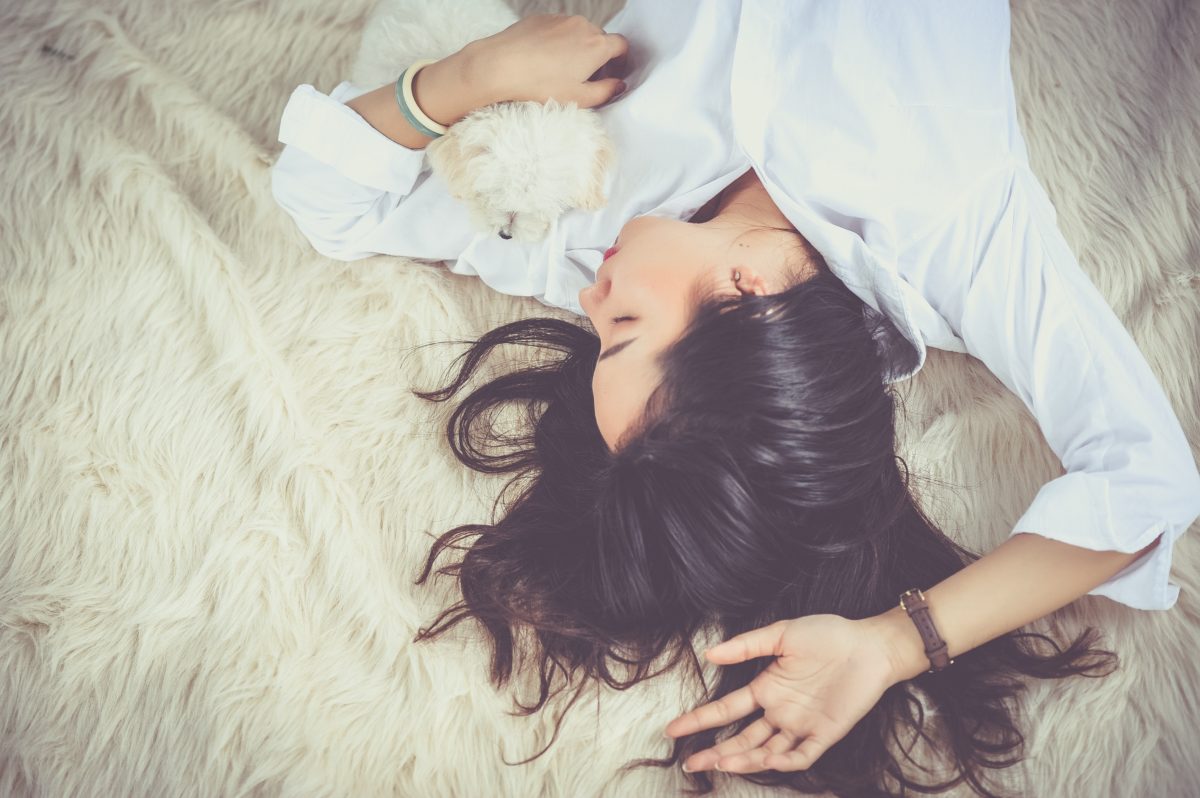
Great content! Super high-quality! Keep it up! 🙂